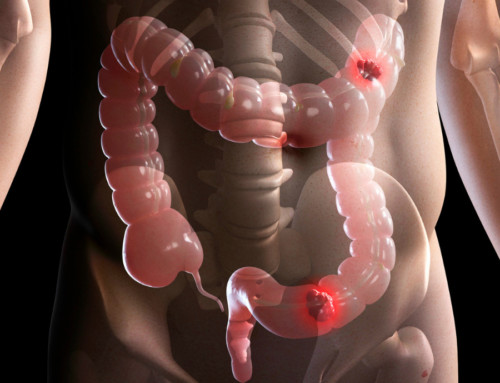 Colon cancer is one of the most prevalent forms of cancer today — according to the National Cancer Institute, it is the third most common type of cancer after bladder cancer and breast cancer. In fact, the American population sees approximately 135,000 new cases of colon cancer each year.
Colon cancer is one of the most prevalent forms of cancer today — according to the National Cancer Institute, it is the third most common type of cancer after bladder cancer and breast cancer. In fact, the American population sees approximately 135,000 new cases of colon cancer each year.
Colon cancer is divided into stages 0 to 4 as defined by the American Joint Committee on Cancer (AJCC), and includes subsections within each stage to clarify where the cancer has spread within the body. Below are some of the recommended treatments that doctors may suggest for patients with colon cancer.
Recommended Treatment Types for Stage 0
Surgery: Polypectomy
Typically, your doctor will recommend surgery to remove any tumors or polyps and, if necessary, some of the surrounding tissue in your colon or rectum. This procedure can be performed during a routine colonoscopy.
Surgery: Laparoscopic Colectomy
If a tumor is too large to be removed via a polypectomy, the next course of action is a bowel resection, performed during a laparoscopic colectomy. During this minimally invasive surgery, your doctor will make three small incisions in your abdomen. Your doctor will then insert a laparoscope (a lighted instrument with a small video camera) and other specialized surgical tools to help remove the cancerous section of the colon or rectum. The two healthy ends of the colon are then surgically reattached. Standard recovery time from this procedure is around four to five days
Recommended Treatment Types for Stage 1
Surgery: Laparoscopic or Open Colectomy
A surgeon will recommend either an open or laparoscopic colectomy for the cancerous part of your colon. Compared to the laparoscopic colectomy mentioned above, an open laparoscopic surgery requires a 6 to 8-inch incision in the abdomen, and recovery time will be around a week or more. A colostomy may also be necessary following the colectomy to give your intestines time to recover.
Recommended Treatment Types for Stage 2
Chemotherapy
Other than a colectomy, your doctor may recommend chemotherapy may be used on tumors that can’t be removed, prior to surgery to shrink a tumor for removal, or after surgery to reduce the risk of recurrence. It can be started four to eight weeks after surgery, for a duration of six months.
Recommended Treatment Types for Stage 3
Radiation Therapy
Beyond surgery or chemotherapy, radiation therapy may also be recommended to prevent recurrence if a cancerous tumor has grown into (or is attached to) nearby tissues or structures. It may also be used if surgery failed to remove all of the cancer.
Recommended Treatment Types for Stage 4
Targeted Therapy
Also referenced as “molecularly targeted drugs,” these drugs or other substances often accompany chemotherapy at this stage unless doctors believe that all of the tumor and cancer cells in the surrounding tissue can be surgically removed. Surgery and chemotherapy are also options for stage 4 colon cancer, too.
Educate Yourself
Although cancer is a scary subject to broach, the good news is that treatment is available. Colon cancer is highly treatable, especially if you take action as soon as possible. Talk to your doctor about your risk of colon cancer, and educate yourself on the available treatments. The more you know, the better you can prepare for the road ahead.





